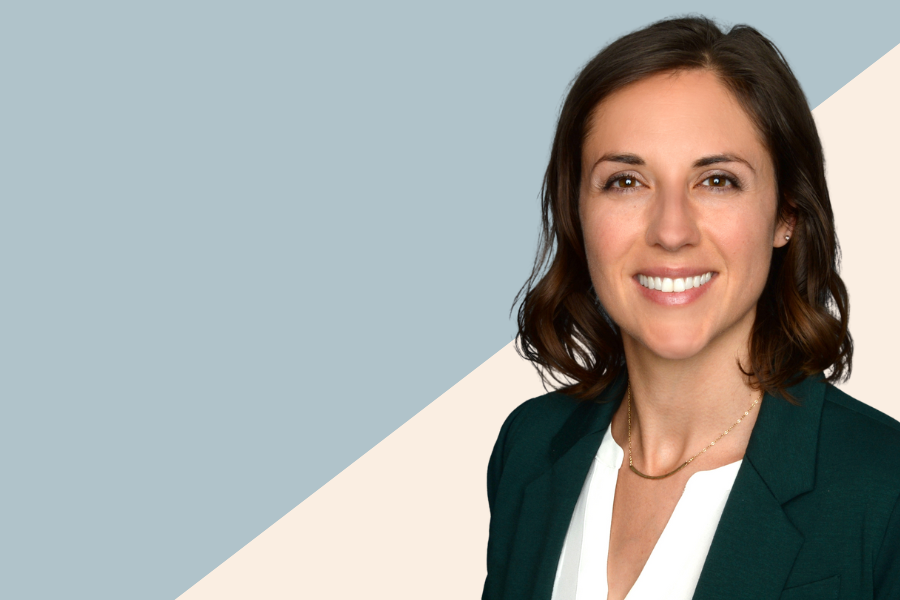Interview with Courtney Pickar
Interview with Courtney Pickar

By kevinlamanna
| In honor of National Nurses Week, we interviewed Courtney Pickar, MS, RNC-OB, ACNS-BC, C-ONQS, C-EFM about her career as a Clinical Nurse Specialist, but the scope of her perinatal career also includes work as a nurse, QI scientist, educator, perinatal health advocate, and parent in southeast Wisconsin. Courtney is both a WAPC member and WisPQC site lead. Over the years, Courtney has served on WisPQC’s Maternal and Data Workgroups and NAS/NOWS, Severe Maternal Hypertension, and Human Milk Feeding Initiatives.
What first drew you to this profession? I have always wanted to advocate for those who could not advocate for themselves. I wanted healthcare to treat to whole person taking into consideration the individual mental, physical, spiritual, and cultural attributes that make each of us unique. I felt especially passionate to use my voice and my skills to help children and their families have equitable opportunities at achieving their dreams. Describe your path to this profession. My grandfather had an attack of Bells Palsy when I was in grade school. I walked alongside him to help him keep his balance even though he was over twice my size. He referred to me as his “little nurse.” I remember reading a lot of fiction novels about teenage volunteers helping care for sick kids or other teens in the hospital or at “special” camps. I wanted to be a part of those stories. I remember a pivotal moment came when I saw a movie called Alex: The Life of a Child about a girl with cystic fibrosis. I felt sorry for all the various “treatments” she had to undergo and my heart broke as she begged her parents to stop/skip it just once. But what impacted me was the how frustrated and upset I felt when several hospital staff didn’t believe her when she said her lung had collapsed, despite her gasping for air. It was a nurse who finally stepped in and called for additional help so they could reinflate her lung. I thought – I want to be that person! The one who is not afraid to listen and believe the patient. The one who speaks up because it is the right thing to do! In high school, I wrote papers on healthcare related topics when I could. I wrote about Ryan White and advocate for unbiased treatment of HIV/AIDS. I wrote about schizophrenia and juvenile diabetes. I also wrote about advocacy and reforming unemployment and Medicaid. But I also volunteered at Children’s Hospital doing whatever they needed. I loved it – making IV protectors, stuffing Mr. Yuk packets, helping out the child life specialists, answering phones in facilities. I just loved it all and knew that I wanted to be a part of the healthcare team. In nursing school, I got job as a night shift secretary on a LDRP unit. It is there that I feel in love with perinatal care. Eventually I became a CNA, then an intern, and upon graduation, an RN. Later I would return for my master’s degree as a CNS – I wanted to spend my career improving the quality of care provided to all patients. I wanted to help other nurses deliver the high-quality care that they want to give patients and that our patients deserve. I wanted to help be the voice of the patient and the nurses who advocate for them every day.
How many years have you been in this profession? I’ve been a nurse for 23 years.
What is the most rewarding part of your profession? Seeing the difference our team makes in family’s lives. When we are able to show that we improved the quality of care we provide, it’s a great day! When we can help families do the best by themselves and their new infants it is wonderful! Listening to nurses’ stories as they advance in their careers and critical thinking if fantastic! Being there for a family when they are making a difficult decision, just listening to them and helping to ensure their spiritual, physical, emotional and cultural needs are met is both heartbreaking but also very rewarding.
What is the most challenging part of your profession? Relaying bad news. No one likes hearing that we can do better and we need to do better. It’s frustrating to the entire team to be informed that we missed an opportunity. Nurses are human and just like everyone else prone to good days and bad days. There is a lot of systems in healthcare that depend on nursing to do the job and do it well without any room for bad days. Trying to figure out how to improve those systems so that they are helpful to nursing and thus helpful to patient safety is very challenging.
Are there any expectations you had about this profession that you have found differed in reality – for better or worse? Nursing is hard work – mentally, physically and emotionally. But nursing is also incredibly rewarding; especially if you can stay true to and remember what called you to be a nurse.
Describe what an average work day or work week looks like for someone in your profession. Staff would tell you my work day is full of meetings and audits. I round on my units to check in with staff and see if there is anything they or the patients on the floor need from me. I check in with fellow leaders for about the same. I review various reports to see if there are any items that need to be addressed for patients currently in the hospital. I review the care provided to some of the more complicated patients. Then I get into whatever projects need to be looked at for that day. I participate in a variety of committees as the perinatal representative both within the hospital and at the state level through the Wisconsin Perinatal Quality Collaborative (WisPQC). I will meet with different ambulatory clinics to discuss high risk pregnancies and the treatment plan. I may meet with new staff or coach experience staff on clinical questions as they arise. I may be asked to meet with a patient who has some unique needs for their delivery experience. Additionally, I have system responsibilities that also look at different safety and quality initiatives within the organization. I may review literature for best practices or national trends. I may attend an educational seminar to learn more about current treatment recommendations on a specific topic. I also spend time ensuring that our EHR has the necessary decision support tools available which may include standardized order sets, modification of charting flowsheets, or developing reports to assist with data driven decision making. Lastly, I try to take everything above and translate the learnings and data into information that allow staff to provide a high level of care to our families.
Which books, podcasts, conferences, etc. would you suggest others in your field (or those interested in your field) should check out? Shadow staff doing the work.
What skills does someone in your profession need in order to be successful in their career? Self-reflection and motivation.
What advice do you have for someone looking to join this profession? Don’t let the hard stuff scare you – the rewards greatly exceed the challenges! Be Passionate – just don’t let your passion interfere with your purpose.
Where can people learn more about joining your profession, if they are interested? UW Milwaukee has information on educational programs for Perinatal CNS. NACNS.org has information on CNS role in general. What else do you wish people knew about your profession? The role of the CNS is largely behind the scenes. But we are uniquely positioned to help improve patient care, nursing practice, and system outcomes.
Thank you, Courtney, for taking the time to share your experience with us! Ensuring the best possible birth outcomes in Wisconsin takes a multidisciplinary approach – that’s why you’re here. Help us put together the pieces of the perinatal puzzle in Wisconsin – share your perspective! |
Other Insights
Statement on Gun Violence and Perinatal Health
Perinatal Substance Abuse Infographic



